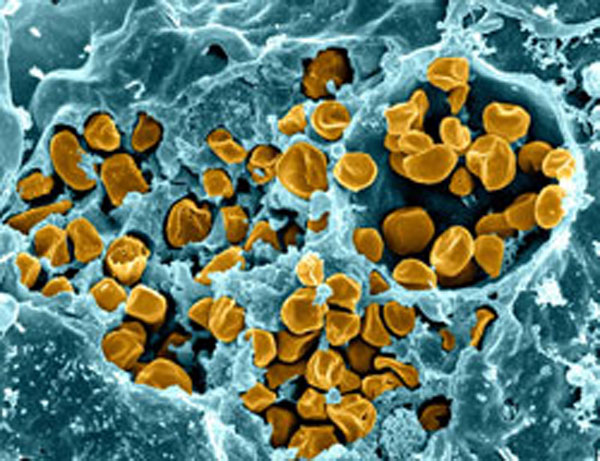Rabbit fever research may help in producing effective vaccines

Rabbit fever (tularemia) is a highly infectious organism. Francisella tularensis, a naturally occurring bacteria, can also be cultivated in a lab as a biological weapon. Scientists have completed the search of probiotic bacteria with high proteolitic activity as antagonists to rabbit-fever pathogen in narrow range, which supports further research.
Contact
- David Hadley
- Technology Transfer
- (505) 667-7539
Rabbit fever research may help in producing effective vaccines
Applications:
- In medical practice, for treatment of dangerous zoonotic infections and other veterinary applications
Benefits:
- In-depth study of antimicrobial action of a specific probiotic bacteria against dangerous infection agent in order to consider it for further probiotic inclusion into complex treatment and prevention of tularemia
Summary:
Rabbit fever (tularemia) is particularly dangerous zoonotic infection. The agent of infection—Francisella tularensis—is a small gram-negative aerophilic bacteria that has great capacity of natural survival. Its action on human and susceptible animals’ organisms is associated with many pathogenic factors, including proteases action. The pathogen biochemical characteristics remain understudied. This is testified by both diversity of rabbit-fever pathogen strains, and their sensitivity to antibiotics. Considering the possibility of using rabbit-fever in terroristic actions the interest in this pathogen is growing constantly. During recent years there has been persuasive evidence of efficiency of biopreparations application from live microbial cultures probiotics in the treatment and prevention of disbacterioses, acute intestinal infections, purulent-septic processes, allergies, and other diseases. However, the issue about their efficiency mechanisms is still discussed.
Several known probiotics are based on lactic-acid bacteria; along with other microorganisms such as Escherichia coli, enterococci, and yeast. However, the researchers have experience with a different bacterial group that is highly antagonistic against pathogenic and opportunistic microorganisms that is able to synthesize biologically active substances and increase organism non-specific resistance yet not harming the patient. It was shown that probiotics effective action is a multi-factor process, caused by high biological activity, in particular, its capacity to produce enzymes. The bacterial group under current study has multi-sided poly-enzymatic activity that allow them to grow on different substrates. Proteases of this bacterial group are used in medical practice in acute and chronic intoxications, in digestive tract diseases, in treatment of various etiology inflammatory processes and of some tumors. Today, there is also interest towards proteases inhibitors that effectively inhibit plasmin, plasmin activators, blood coagulation factors, kallikrein, trypsin, chemotrypsin, tissue and leucocytic proteinases. They are used in treatment of sepsis, bacterial (endotoxic) shock, allergic reactons, acute and postoperative pancreatitis, mechanic and thermal traumas, and in arthorsis-arthritis.
Scientists have completed the search of probiotic bacteria with high proteolitic activity as antagonists to rabbit-fever pathogen in narrow range, which supports further research.
Existence in their research arsenal of the rabbit-fever vaccine strain has proven itself during many decades as the most efficient in live vaccine production, gives us the possibility to complete full-fledged research in this direction.
The research aim is to study antimicrobial action of a specific probiotic bacteria against particularly dangerous infection agent—tularemia—in order to consider it for further probiotic inclusion into complex treatment and prevention of tularemia, including in emergencies.
Development stage: LANL and the Scientific Research Anti-Plague Institute in Odessa, Ukraine, are at the initial stages of proposal development.
Patent status: No patents have been filed yet for the work proposed under this project.
Licensing status: Available for licensing once project is developed.














